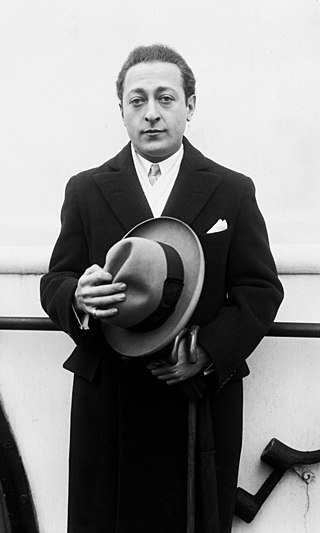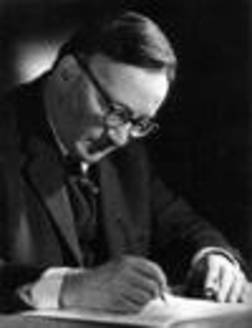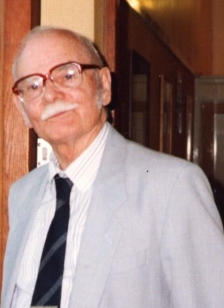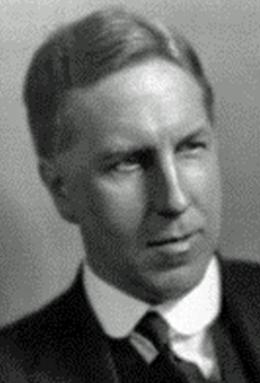
Sir Granville Ransome Bantock was a British composer of classical music.
Ruth Dorothy Louisa ("Wid") Gipps was an English composer, oboist, pianist, conductor and educator. She composed music in a wide range of genres, including five symphonies, seven concertos and many chamber and choral works. She founded both the London Repertoire Orchestra and the Chanticleer Orchestra and served as conductor and music director for the City of Birmingham Choir. Later in her life she served as chairwoman of the Composers' Guild of Great Britain.

The Violin Concerto by William Walton was written in 1938–39 and dedicated to Jascha Heifetz, who commissioned the work and performed it at its premiere on 7 December 1939 with the Cleveland Orchestra conducted by Artur Rodziński. The British premiere, delayed by the Second World War, was given on 1 November 1941, with Henry Holst as soloist and the composer conducting. Walton later reorchestrated the concerto; the revised version was premiered in 1944. The work has been frequently recorded and has established itself as one of the composer's most durable compositions.
Gordon Percival Septimus Jacob CBE was an English composer and teacher. He was a professor at the Royal College of Music in London from 1924 until his retirement in 1966, and published four books and many articles about music. As a composer he was prolific: the list of his works totals more than 700, mostly compositions of his own, but a substantial minority of orchestrations and arrangements of other composers' works. Those whose music he orchestrated range from William Byrd to Edward Elgar to Noël Coward.

Franz Theodor Reizenstein was a German-born British composer and concert pianist. He left Germany for sanctuary in Britain in 1934 and went on to have his teaching and performing career there. As a composer, he successfully blended the equally strong but very different influences of his primary teachers, Hindemith and Vaughan Williams.
Golani was born in Tel Aviv. Her father Yakov Gulnik was from Warsaw, and had lost his family in the Holocaust. Her mother Liza Goldstein was from Polish Galicia. Golani took up the violin at age 7, while her sister Bela learned the cello. Golani was a mathematics prodigy.

Crown Imperial is an orchestral march by William Walton, commissioned for the coronation of King George VI in Westminster Abbey in 1937. It is in the Pomp and Circumstance tradition, with a brisk opening contrasting with a broad middle section, leading to a resounding conclusion. The work has been heard at subsequent state occasions in the Abbey: the coronation of Queen Elizabeth II in 1953, the wedding of Prince William in 2011 and the coronation of King Charles III in 2023. It has been recorded in its original orchestral form and in arrangements for organ, military band and brass band.

In the South (Alassio), Op. 50, is a concert overture composed by Edward Elgar during a family holiday in Italy in the winter of 1903 to 1904. He was working on a symphony, but the local atmosphere inspired him instead to write what some have seen as a tone poem, with an Italian flavour. At about 20 minutes' duration it was the composer's longest sustained orchestral piece to that time.

Ian Parrott was a prolific Anglo-Welsh composer and writer on music. His distinctions included the first prize of the Royal Philharmonic Society for his symphonic poem Luxor, and commissions by the BBC and Yale University, and for many leading British musicians. In 1958 his cor anglais concerto was first performed at Cheltenham Festival, and in 1963 his cello concerto was given by William Pleeth and the Hallé Orchestra – both concertos were conducted by Sir John Barbirolli.
John Douglas Louis Veale was an English classical composer.
Margaret Brouwer is an American composer and composition teacher. She founded the Blue Streak Ensemble chamber music group.

Thomas Frederick Dunhill was a prolific English composer in many genres, though he is best known today for his light music and educational piano works. His compositions include much chamber music, a song cycle, The Wind Among the Reeds, and an operetta, Tantivy Towers, that had a successful London run in 1931. He was also a teacher, examiner and writer on musical subjects.
Santiago de Espada is a concert overture by the Australian composer Malcolm Williamson.

"In Moonlight" is a song with music written by the English composer Edward Elgar in 1904 to words from the poem "An Ariette for Music. To a Lady singing to her Accompaniment on the Guitar", by Percy Bysshe Shelley (1792-1822) and published in 1832.
The English conductor Sir Adrian Boult was a prolific recording artist. Unlike many musicians, he felt at home in the recording studio and actually preferred working without an audience. His recording career ran from November 1920, when working with Diaghilev's Ballets Russes he recorded the ballet music, The Good-Humoured Ladies, to December 1978, when he made his final recording of music by Hubert Parry.

Andreas Makris was a Greek-American composer and violinist, born in Kilkis, Greece, on March 7, 1930. He was a Composer-in-Residence for many years at the National Symphony Orchestra in Washington DC, working with conductors such as Howard Mitchell, Mstislav Rostropovich, Antal Dorati, and Leonard Slatkin. He composed around 100 works for orchestra, chamber ensembles, and solo instruments, including the Aegean Festival Overture, which, transcribed for concert band by Major Albert Bader of the USAF Band, became a popular piece with US bands. Grants and awards he received include the Damroch Grant, National Endowment for the Arts Grant, the Martha Baird Rockefeller Award, ASCAP Award, the Fulbright Scholarship, and citations from the Greek Government.
Charlotte Bray is a British composer. She was championed by the Royal Opera House Covent Garden, London Sinfonietta and Birmingham Contemporary Music Group, BBC Symphony Orchestra. Her music has been performed by many notable conductors such as: Sir Mark Elder, Oliver Knussen, Daniel Harding, and Jac van Steen.

Airat Rafailovich Ichmouratov born 28 June 1973, is a Volga Tatar born Russian / Canadian composer, conductor and klezmer clarinetist. He is a founding member and clarinetist of award-winning Montreal-based klezmer group Kleztory and invited professor at Laval University in Quebec, Canada.
This article lists notable compositions within the viola repertoire. The list includes works in which the viola is a featured instrument. The list is ordered by composer surname.
A Fugal Overture, Op. 40/1, H 151, is a short concert overture for full orchestra by the English composer Gustav Holst. It was written in 1922 and first performed in 1923, and is a very early example of musical neoclassicism. Though there were conflicting opinions from Holst's contemporaries about the work's merits, it has since come to be considered an attractive and exciting, if slight, example of Holst's later style.









